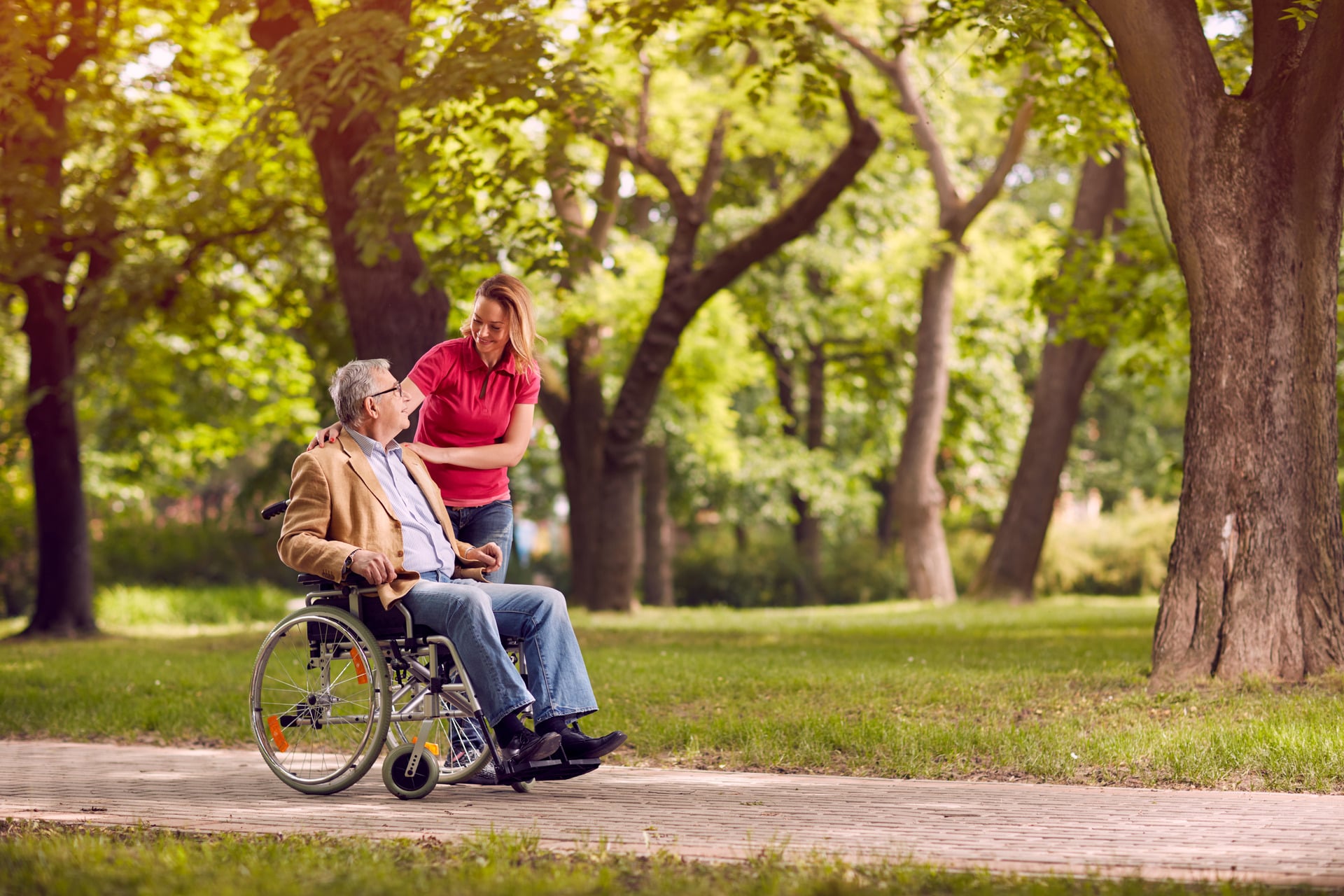Until recently, many of us had never heard of a “heat dome.” But we were likely aware of how much our planet is heating up, and our usually mild Vancouver summers are getting warmer and warmer every year.
Warmer summers can be especially dangerous for those most at risk in our communities, including seniors. We must support our aging population to ensure they’re staying safe and cool during significant heat events.
Keep reading to learn more summer tips for seniors and essential hot weather safety.
The dangers of warm summers
When we’re young, we crave warm summers, but as we get older, they can become dangerous to our health and wellbeing if we don’t take extra precautions. Seniors, especially those over 65 years old, are more vulnerable to heat-related complications. These risks include a higher chance of being hospitalized due to heat exhaustion, heat stroke, and heat syncope, as well as exacerbating preexisting conditions.
Many seniors still feel young at heart and don’t consider themselves vulnerable during heat events. This can lead to them taking unnecessary risks and endangering themselves. Additionally, older adults with dementia or other neurological conditions may be unaware of the dangers. Others are hard-set on maintaining their independence as they age, which includes being as self-reliant as possible and not listening when others are trying to help.
Do you remember the heatwave in 2021? The BC Coroners Service reported that nearly 600 people died during this time, 91% of whom were over 60. This highlights the grave importance of supporting our seniors during extreme heat waves.
How to keep seniors safe in warm temperatures
Whether your senior loved ones live at home or in a retirement community or assisted living facility, you can help ensure they stay cool. Here are some ways to keep them safe in warm temperatures.
Limit outdoor activities to the cooler times of day
Getting fresh air is still essential, even during extreme hot weather events. For vulnerable populations, avoid being outside during the hottest times of the day. This is usually 10 am to 4 pm, with the worst heat happening in the afternoon.
Help your senior loved ones get outside first thing in the morning, maybe enjoying breakfast outside, and again after the sun sets if it’s cooled down. It’s a key component of summer safety for seniors.
Ensure they have AC and cooling options
Check their air conditioning units to ensure they work correctly before any heat events. Getting them serviced during heat waves can be tricky (due to service companies being overloaded with repair bookings), so check them regularly during summer to ensure they’re working.
If the senior doesn’t have AC in their house, get them a portable one. Also, ensure they have ways to cool down at home, including providing plenty of fresh ice for cold drinks and having several cooling neck scarves in the freezer. You can also keep the house cool by closing the blinds and windows.
Keep them hydrated
Make sure they’re staying hydrated, even if they’re not going outdoors in summer. Dehydration can be life-threatening for seniors. Signs of dehydration include:
- Extreme thrust
- Dry mouth
- Frequent urination
- Fever or excess sweating
- Diarrhea and vomiting
- Abnormal confusion or disorientation
- Extra sleepiness
To help, use reminder alarms for them to drink a glass of water throughout the day. You can also encourage them to eat fruits and vegetables with high water content (like watermelon, cucumber, and more).
Review medications
If your loved one is on any medications, check to see if exposure to the sun can cause side effects. Some medicines will not work as well when you’re exposed to prolonged sunlight, so check with their doctor if you are unsure.
Reduce strenuous activities; Switch to indoor activities
While exercising is very important, it shouldn’t be done if it’s dangerous. Ensure your senior loved ones avoid outside exercise during the hottest times of the day. Consider lower-effort exercises outside (like walking) earlier in the day, and switch other physical activities to indoor ones during summer to avoid overheating. This will help ensure they get the exercise they need while having a safe summer.
Be sun smart
Help your senior loved one dress appropriately for the warmer weather. Choose light and flowy clothing to promote airflow as much as possible. If they go outside, ensure they have a large brimmed hat to protect them from the sun and that they put on sunscreen too.
Do regular check-ins
If you’re not living with your senior loved one, check in on them regularly during extreme weather events. Ensure they take care of themselves and their home so it’s safe. Check that they have enough fresh, healthy food, and look for signs of physical or mental distress. If they live alone, this is especially important.
Make friends with their neighbours and have them keep an eye on them when you can’t be there—even asking them to gently remind the senior of the dangers of the heat if they notice them outside unnecessarily during the day.
Another way to care for seniors health and wellbeing in the heat
During the summer months, you likely want to get out and enjoy it yourself. When you need extra support for your senior loved ones, consider having Hero Home Care check in on them. It can be as simple as a daily phone call to ensure they stay safe. Or, an in-home visit can provide extra help and support to ensure they stay active, take their medicine, eat well, and stay cool.
Book a complimentary in-home consultation today to learn more about how our caring in-home care aides and nurses can help ensure the safety of your loved ones during adverse weather (or any day).

